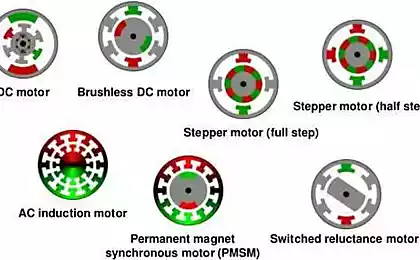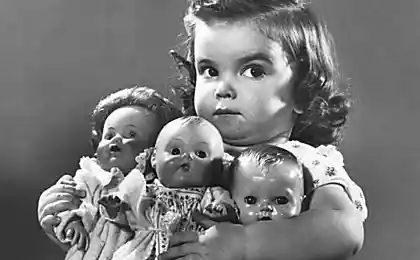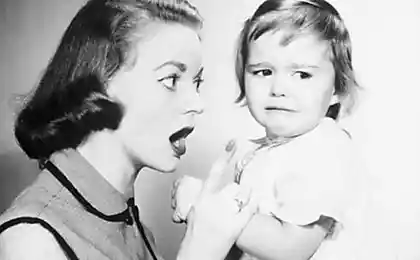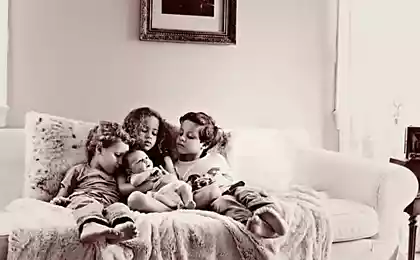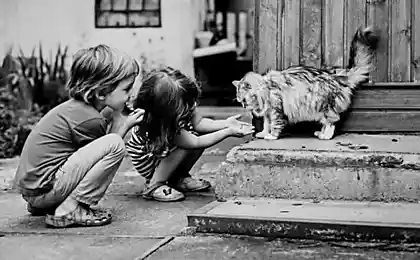562
Backward flow of care
How is it that so many young people today are childish? How to raise a child, so he grew up a full-fledged personality? Thoughts, experiences and helpful tips divided psychologist and mother of many children Ekaterina Burmistrova.
Each family has its own, unique story. In fact, a planet or a continent, a whole world with his emotional traditions, customs and patterns of behaviour.
It is difficult and unprofitable to compare the family. After all, what is normal and natural for one family, it is absolutely unacceptable for another. And what is written below is not a guide to action, "food for thought".
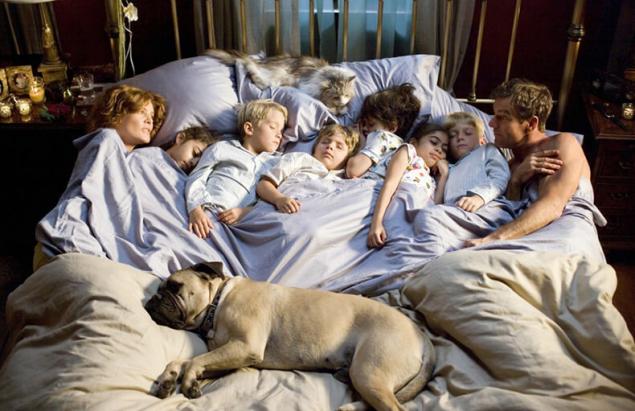
So, in the tradition of education that has prevailed after the Second world war, after the value of life has increased and fertility rates declined, accepted, "prescribed" a huge concern of adults about their own children.
The standard of living was higher, interest in the characteristics of child development also increased. Children have long been the focus of Western civilization. Moreover, modern civilization in some studies called "geocentricism". Russian space has its own cultural characteristics, but in General, belongs to the same tradition in regard to attitudes towards children and education.
Our beloved children is something that is incredibly appreciated that very much invested.
Habit of who cares about
In standard modern family, where more adults than children, there is a definite scheme of "who cares about". While the child is small, parents care about him — something quite natural. But, as we know, the only children in everyday terms (and often not only in household) does not like to grow.
Why do we expect at a certain age the situation changes, and the older child will magically become the care of parents?
Many of our thoughts are based on such unconscious beliefs. Somehow parents think that the child will grow up and understand", "become older and the senses". And sometimes it really is the case. Some life experiences in the family or outside of it, causes grown-up person to ensure that it is possible someone to take care of.
But often the first time it occurs only when the first-born is born, not in the family of origin towards their own parents. And learn to take care of immediately my own child, when before you didn't care about anyone and all, on the contrary, cared about you, Oh so easy.
That run povzroslevshie the boys and of marriages, not only from wives, which has recently been passionately in love, but young children who are just desperately in need of care. Woman running away much harder, cultural stereotypes, thank God, still at work. But often women from the unusual level of daily care for the affected, becoming peel, unhappy, "martyrs", not appreciating their crowns.
According to my observations, is now growing in excess of received (inbound) concerns and a lack of outbound only 2-3 generation of children. "Learned helplessness" that is lack of skill to care for themselves and others, has not yet become an integral part of the personality. Although the generation of the late 90s and 2000s, is already quite frequently, especially in the medium and upper class strata of Russian society. And the number of viable marriages, young families, in which spouses are not ready to take care of neighbours themselves, even among believers is growing.
Let's try to track how this can develop (or not develop) the ability to care for others and ourselves.
Grafted self-centeredness and "learned helplessness"
Around the age of two years, virtually every child it's the age of the incredible desire for independence. The kid wants to do everything himself, resists help, feels great pleasure if he could. And, of course, at this age it is much easier and faster to do everything "for" child "instead of" child than "together" with him. It knows anyone who tried to give the baby the opportunity to dress up, wash the dishes, pour the juice in a Cup.
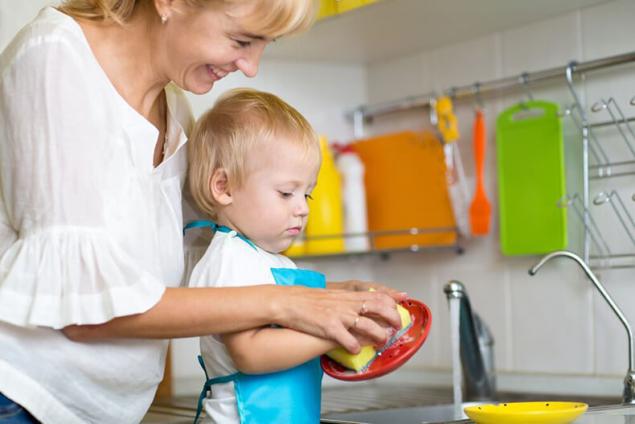
The child will try to experiment, be naughty, it will take a lot of time and moral strength. And we're always in a hurry. Calm, measured rhythm of life is not typical of most families.
And now, for the amount of reasons we do not give the child the responsibility that he can and wants to take.
And in 4-5 years to wash the dishes or picking up toys will not make. The habit to the fact that it makes someone else.
In a similar way it may happen and lessons from a first grader, and responsible for the distribution of his time at the teenager. Of course, to "let go" and give on their own responsibility to a child such things should be wisely and carefully. But how often can one make of a family the list of missed opportunities for the provision of independence"!
And the reasons for this are many. Let us mention the principal:
And this is rarely understood in such terms. Just unconsciously, or rather irresponsible, the parents continue to do everything even for a very large baby. And this way of living is supported by many thoughts, or rather discourses that exist in the modern world. For example:
"Real mom" — sacrificial mother
But often mom is a very good and responsible mothers believe that their main task is to save a child from care. Operates a chain
Hyper and the ability to care
Total infantilism
It also happens that the decade of sustainable hyperopic forms a kind of overgrown Peter pan. And it turns out that "our boy is 20 and he is not going to grow". He doesn't know how to cook pasta, has no idea how to fix the socket — of course, because in most schools the subject of "labour" is replaced by extra English.
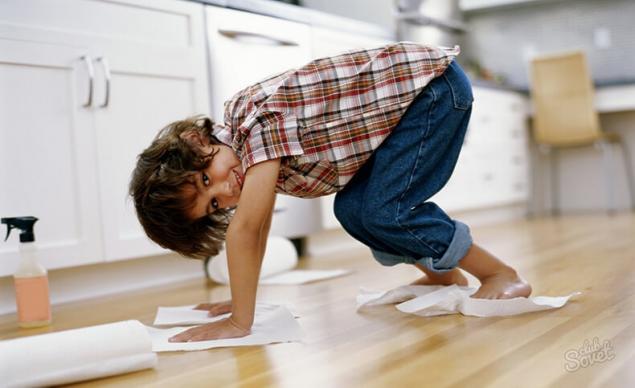
No one taught formally adult to pay bills or plan a budget, doing a spring cleaning or help to disassemble the family archive.
Children are often kept up to med school: "We will do everything that you study!", but it turns out that "Apple has grown, but not ripe."
And the boy or girl that looks brand adults not only can't take care of others, but so dependent that are incapable of autonomy.
And so, two Chicks, who are used to total care, get married...
Now quite a few written about the problems of young families. While talking about this should. After all, there is a sad statistic that more than 70% of marriages in modern Russia disintegrate. In my experience, one of the main reasons of early divorces — is a mutual lack of habit to take care of.
While the child is small, difficult to see so far.
And most importantly, he really seems little.
But time cunningly", and it passes very quickly.
Before you know it, and that is not the first grade, and tenth...
Can we expect care from the "Apple of his eye"
As we remember, father Carlo sold only jacket and bought an ABC book for Pinocchio: "You just learn, baby!" It is not necessary that any child in education which a lot is invested, will have to go through the adventures that befell this fantastic character, although it often is.
The parent promise "we will do everything, and you just learn."
Well. We really can do for the child: collect the scattered toys and clothes, put down the briefcase to take to the sink and wash a plate and a Cup.
We can do all that he can do himself.
The question is whether it is useful?
And we?
And our relationships?
What a child learns, sees a total and comprehensive parental care?
I think a lot of what. Different. Because the same action care produced in different emotional States are perceived differently.
Example: mom (dad, grandma) cares, and it inspires her. And the child might make an unconscious conclusion that care is nice and not hard.
Here is another example: mom (dad, grandma) takes care languishes. She was tired, she was sad and unpleasant. And the child, without realizing it, will conclude that to worry about other tedious and variatsionno.
What to do if the child is not really needed, but you want to reverse the current concern emerged:
Almost any situation can be given a cart and a small truck recommendations, and some of them even work. But the issue discussed in this text, from the category formal. This topic touches on very deep foundations of the life of the modern family. And to change here anything, especially "the voice of strangers" and without their own request, is hardly possible.
Especially because my own children yet not adults.
And this reasoning is rather based on the experience of counselling.
Are artificial measures?
Artificial, specially designed efforts to create a "reverse current concerns may prove to be futile. Children have amazing intuition on real and unreal things.
His efforts and attempts to care really needs to be claimed. For example, a salad (or a sandwich), even not very good, but made by yourself, you need to first try.
Is it possible to include "reverse current care"
I think you can and should try to do even in families with only children, inventing, inventing, not inhibiting the activity of the child. I know a psychologist who has developed and successfully conducts for elementary school students psychological group called "home Alone", where among other things teaches you to cook dumplings, to collect spilled sugar or a dish, to be able to use basic first-aid kit or changing a light bulb. It's not funny, and this is not advertising, the people there are more than enough. It's just a very good illustration of the current situation.
What previously was transferred easily and naturally now it requires almost lessons with a specialist. And you could see how pleased with themselves and proud of their successes the children there go and try the experience in life to use. And run there with pleasure, because it is about real life, not an abstract set of school knowledge. And mostly they are only children or very late. Children from large families are a different situation.
Do I need to include the current concern artificially?
I think it is better to try to artificially include than not to include any way. But this is not an expert opinion, but my point of view, and each family is helpful to develop your vision of this problem. Or the feeling that it is an empty word.
Attempts of inclusion of care camps and trips with their capabilities of self-organization; workshops and master classes (arts and crafts) and help with the garden or care for Pets. We can more or less artificially — read: the purpose is to create an environment where the care and activity coming from the children, needed, important and interesting.
For this you need to make the decision not to raise the "tadpoles" — those who work only his head and presses the only button.
Although it is so natural in the post-industrial era.
But you try to cook with a baby soap or jam, to make a bird feeder or a wooden sword, and you will see how long the child (preschooler or a senior student) will remember this. And if the fruit of the efforts can become a gift that is appreciated, then the child opens a great opportunity to Express love and care.
Gifts made with your own hands (albeit with the help of an adult), food and tasty drink for the parents is minimal, but significant assistance at home, daily care of a pet can be your child's "entry points" into the world of mutual concern.
Ah, can you overdo it?
As with all good fact, things, and ideas, there is a possibility with excessive pressure and attention to receive care from the child, to instill this same concern disgust.
Anything you can form: and lessons, and to music, and skiing. It is only necessary to get angry when the child does not work or it turns out insufficiently well. Or say "I don't believe in you", and when the child tries not to evaluate its results.
I specifically give "antiintrusion", because what is possible and useful to do in terms of the child's education caring for others, every family that thought of this text is close, will have to reinvent themselves.
10 summer movies you need to watch with the kids
Differently does not understand Why parents hit children
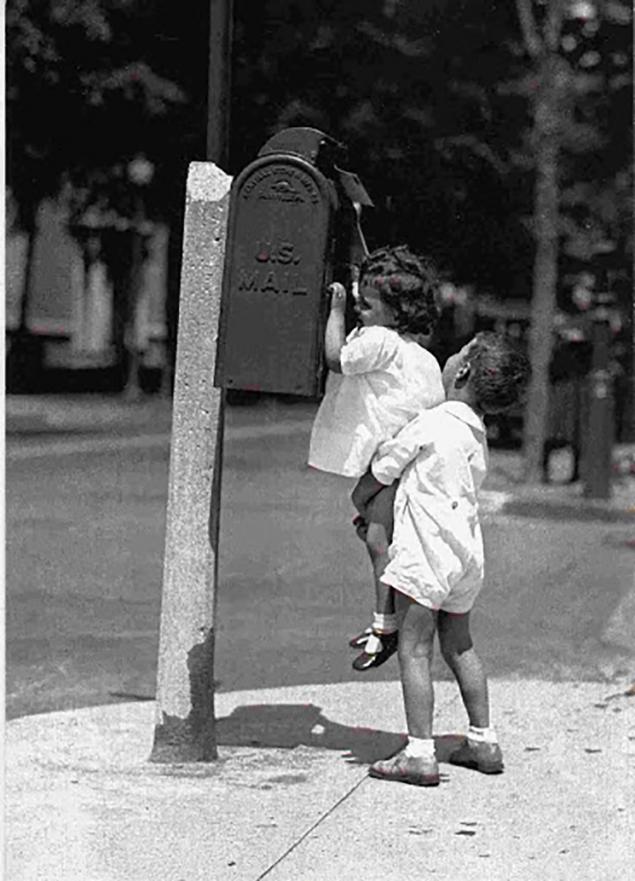
And here's a nice field experiment with independence:
Author: Ekaterina Burmistrova
P. S. And remember, only by changing their consumption — together we change the world! ©
Source: www.pravmir.ru/obratnyj-tok-zaboty/
Each family has its own, unique story. In fact, a planet or a continent, a whole world with his emotional traditions, customs and patterns of behaviour.
It is difficult and unprofitable to compare the family. After all, what is normal and natural for one family, it is absolutely unacceptable for another. And what is written below is not a guide to action, "food for thought".

So, in the tradition of education that has prevailed after the Second world war, after the value of life has increased and fertility rates declined, accepted, "prescribed" a huge concern of adults about their own children.
The standard of living was higher, interest in the characteristics of child development also increased. Children have long been the focus of Western civilization. Moreover, modern civilization in some studies called "geocentricism". Russian space has its own cultural characteristics, but in General, belongs to the same tradition in regard to attitudes towards children and education.
Our beloved children is something that is incredibly appreciated that very much invested.
Habit of who cares about
In standard modern family, where more adults than children, there is a definite scheme of "who cares about". While the child is small, parents care about him — something quite natural. But, as we know, the only children in everyday terms (and often not only in household) does not like to grow.
Why do we expect at a certain age the situation changes, and the older child will magically become the care of parents?
Many of our thoughts are based on such unconscious beliefs. Somehow parents think that the child will grow up and understand", "become older and the senses". And sometimes it really is the case. Some life experiences in the family or outside of it, causes grown-up person to ensure that it is possible someone to take care of.
But often the first time it occurs only when the first-born is born, not in the family of origin towards their own parents. And learn to take care of immediately my own child, when before you didn't care about anyone and all, on the contrary, cared about you, Oh so easy.
That run povzroslevshie the boys and of marriages, not only from wives, which has recently been passionately in love, but young children who are just desperately in need of care. Woman running away much harder, cultural stereotypes, thank God, still at work. But often women from the unusual level of daily care for the affected, becoming peel, unhappy, "martyrs", not appreciating their crowns.
According to my observations, is now growing in excess of received (inbound) concerns and a lack of outbound only 2-3 generation of children. "Learned helplessness" that is lack of skill to care for themselves and others, has not yet become an integral part of the personality. Although the generation of the late 90s and 2000s, is already quite frequently, especially in the medium and upper class strata of Russian society. And the number of viable marriages, young families, in which spouses are not ready to take care of neighbours themselves, even among believers is growing.
Let's try to track how this can develop (or not develop) the ability to care for others and ourselves.
Grafted self-centeredness and "learned helplessness"
Around the age of two years, virtually every child it's the age of the incredible desire for independence. The kid wants to do everything himself, resists help, feels great pleasure if he could. And, of course, at this age it is much easier and faster to do everything "for" child "instead of" child than "together" with him. It knows anyone who tried to give the baby the opportunity to dress up, wash the dishes, pour the juice in a Cup.

The child will try to experiment, be naughty, it will take a lot of time and moral strength. And we're always in a hurry. Calm, measured rhythm of life is not typical of most families.
And now, for the amount of reasons we do not give the child the responsibility that he can and wants to take.
And in 4-5 years to wash the dishes or picking up toys will not make. The habit to the fact that it makes someone else.
In a similar way it may happen and lessons from a first grader, and responsible for the distribution of his time at the teenager. Of course, to "let go" and give on their own responsibility to a child such things should be wisely and carefully. But how often can one make of a family the list of missed opportunities for the provision of independence"!
And the reasons for this are many. Let us mention the principal:
- the rush
- a sense of guilt towards the baby because he something "nedodali"
- broken adult relationships in the family
- the concern for the health or mental welfare of a child
- conflict position adults on issues of self-reliance
And this is rarely understood in such terms. Just unconsciously, or rather irresponsible, the parents continue to do everything even for a very large baby. And this way of living is supported by many thoughts, or rather discourses that exist in the modern world. For example:
"Real mom" — sacrificial mother
But often mom is a very good and responsible mothers believe that their main task is to save a child from care. Operates a chain
Hyper and the ability to care
Total infantilism
It also happens that the decade of sustainable hyperopic forms a kind of overgrown Peter pan. And it turns out that "our boy is 20 and he is not going to grow". He doesn't know how to cook pasta, has no idea how to fix the socket — of course, because in most schools the subject of "labour" is replaced by extra English.

No one taught formally adult to pay bills or plan a budget, doing a spring cleaning or help to disassemble the family archive.
Children are often kept up to med school: "We will do everything that you study!", but it turns out that "Apple has grown, but not ripe."
And the boy or girl that looks brand adults not only can't take care of others, but so dependent that are incapable of autonomy.
And so, two Chicks, who are used to total care, get married...
Now quite a few written about the problems of young families. While talking about this should. After all, there is a sad statistic that more than 70% of marriages in modern Russia disintegrate. In my experience, one of the main reasons of early divorces — is a mutual lack of habit to take care of.
While the child is small, difficult to see so far.
And most importantly, he really seems little.
But time cunningly", and it passes very quickly.
Before you know it, and that is not the first grade, and tenth...
Can we expect care from the "Apple of his eye"
As we remember, father Carlo sold only jacket and bought an ABC book for Pinocchio: "You just learn, baby!" It is not necessary that any child in education which a lot is invested, will have to go through the adventures that befell this fantastic character, although it often is.
The parent promise "we will do everything, and you just learn."
Well. We really can do for the child: collect the scattered toys and clothes, put down the briefcase to take to the sink and wash a plate and a Cup.
We can do all that he can do himself.
The question is whether it is useful?
And we?
And our relationships?
What a child learns, sees a total and comprehensive parental care?
I think a lot of what. Different. Because the same action care produced in different emotional States are perceived differently.
Example: mom (dad, grandma) cares, and it inspires her. And the child might make an unconscious conclusion that care is nice and not hard.
Here is another example: mom (dad, grandma) takes care languishes. She was tired, she was sad and unpleasant. And the child, without realizing it, will conclude that to worry about other tedious and variatsionno.
What to do if the child is not really needed, but you want to reverse the current concern emerged:
- Can you explain that to worry is nice.
- You can really appreciate the concern.
- You can grant the role "honorary assistant" for very young children.
- You can talk with your child about his and your future, sharing their hopes for how caring he grows up.
- You should try to control excessive assistance coming from adults.
Almost any situation can be given a cart and a small truck recommendations, and some of them even work. But the issue discussed in this text, from the category formal. This topic touches on very deep foundations of the life of the modern family. And to change here anything, especially "the voice of strangers" and without their own request, is hardly possible.
Especially because my own children yet not adults.
And this reasoning is rather based on the experience of counselling.
Are artificial measures?
Artificial, specially designed efforts to create a "reverse current concerns may prove to be futile. Children have amazing intuition on real and unreal things.
His efforts and attempts to care really needs to be claimed. For example, a salad (or a sandwich), even not very good, but made by yourself, you need to first try.
Is it possible to include "reverse current care"
I think you can and should try to do even in families with only children, inventing, inventing, not inhibiting the activity of the child. I know a psychologist who has developed and successfully conducts for elementary school students psychological group called "home Alone", where among other things teaches you to cook dumplings, to collect spilled sugar or a dish, to be able to use basic first-aid kit or changing a light bulb. It's not funny, and this is not advertising, the people there are more than enough. It's just a very good illustration of the current situation.
What previously was transferred easily and naturally now it requires almost lessons with a specialist. And you could see how pleased with themselves and proud of their successes the children there go and try the experience in life to use. And run there with pleasure, because it is about real life, not an abstract set of school knowledge. And mostly they are only children or very late. Children from large families are a different situation.
Do I need to include the current concern artificially?
I think it is better to try to artificially include than not to include any way. But this is not an expert opinion, but my point of view, and each family is helpful to develop your vision of this problem. Or the feeling that it is an empty word.
Attempts of inclusion of care camps and trips with their capabilities of self-organization; workshops and master classes (arts and crafts) and help with the garden or care for Pets. We can more or less artificially — read: the purpose is to create an environment where the care and activity coming from the children, needed, important and interesting.
For this you need to make the decision not to raise the "tadpoles" — those who work only his head and presses the only button.
Although it is so natural in the post-industrial era.
But you try to cook with a baby soap or jam, to make a bird feeder or a wooden sword, and you will see how long the child (preschooler or a senior student) will remember this. And if the fruit of the efforts can become a gift that is appreciated, then the child opens a great opportunity to Express love and care.
Gifts made with your own hands (albeit with the help of an adult), food and tasty drink for the parents is minimal, but significant assistance at home, daily care of a pet can be your child's "entry points" into the world of mutual concern.
Ah, can you overdo it?
As with all good fact, things, and ideas, there is a possibility with excessive pressure and attention to receive care from the child, to instill this same concern disgust.
Anything you can form: and lessons, and to music, and skiing. It is only necessary to get angry when the child does not work or it turns out insufficiently well. Or say "I don't believe in you", and when the child tries not to evaluate its results.
I specifically give "antiintrusion", because what is possible and useful to do in terms of the child's education caring for others, every family that thought of this text is close, will have to reinvent themselves.
10 summer movies you need to watch with the kids
Differently does not understand Why parents hit children

And here's a nice field experiment with independence:
- cooking (only tune that for quite a long time 80-90% of the production is malosedobnaya). But then, the child can surprise and please you. The voting age from 6-7 years.
- help in serving holiday and regular meals (preferably only to buy special book, or watch on the Internet images and ideas serving)
- teaching kids to use the devices and techniquesthat are in the house. Don't forget to explain in advance the safety rules
- reorganizing a room or elements of the permutation taking into account the creative ideas of the child
- regular independent trip to the store (if possible according to your circumstances and the age of the child).published
Author: Ekaterina Burmistrova
P. S. And remember, only by changing their consumption — together we change the world! ©
Source: www.pravmir.ru/obratnyj-tok-zaboty/







